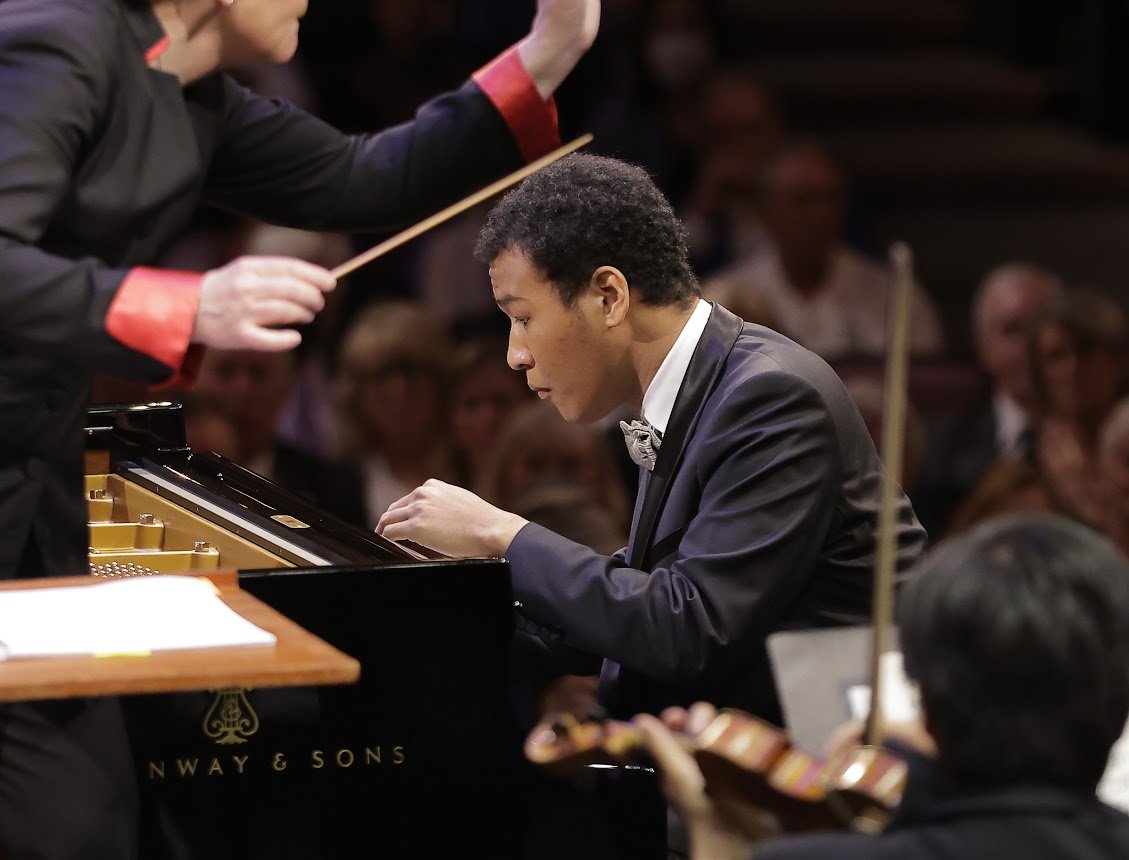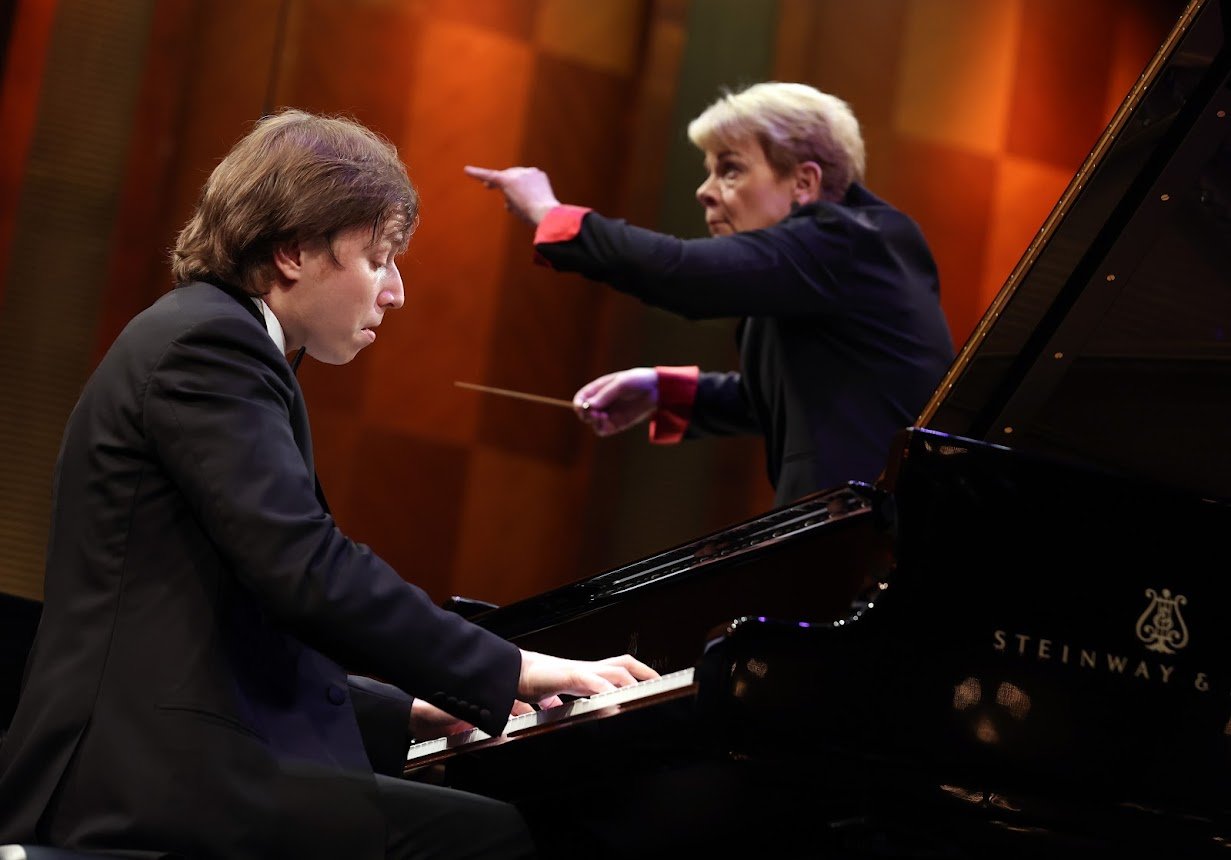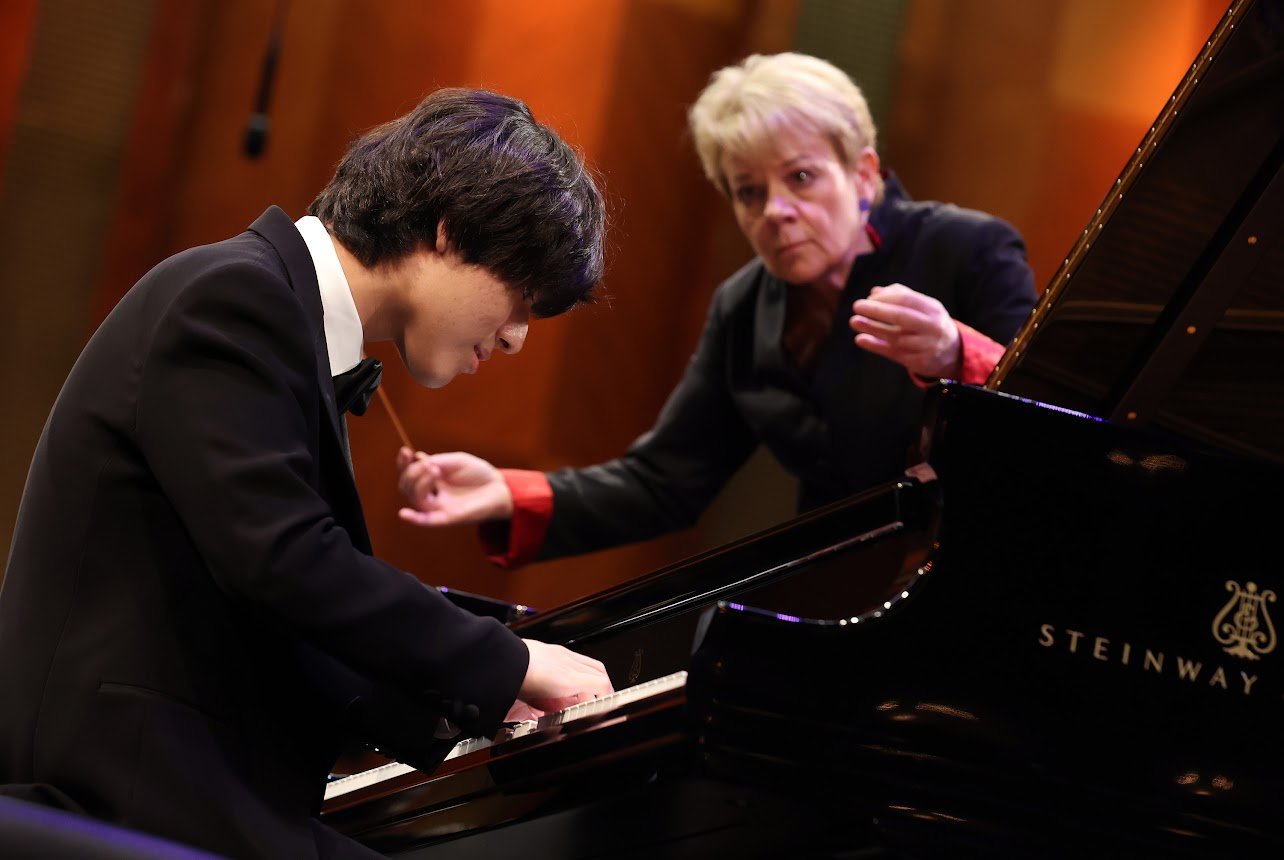Final Round Concert 3: Stevenson, Shmukler, Lim
—Wayne Lee Gay
Friday night's final round concerto session at the Cliburn, with conductor Marin Alsop and the Fort Worth Symphony Orchestra, brought out three virtuoso romantic concertos, and produced, at least for this listener, a clear front-runner for the gold.
American Clayton Stephenson, 23, was greeted with a home-country-favorite ovation as he walked onstage. In the competition's second performance of Rachmaninoff's Third, he continued to demonstrate, as in his previous performances, meticulous attention to phrasing and expression combined with impressive muscle power and fleet finger technique. Aggressive articulation in the first movement, fine lyricism in the Adagio second movement, and strong forward impetus with appropriately explosive moments in the Finale demonstrated the musical strengths which, combined with a natural charisma, bode well for a successful high-level concert career for Stephenson.
Up next, Russian Ilya Shmukler, 27, performed the Grieg Concerto, a work that these days rarely appears in competition final rounds. It was a good choice for Shmukler: once a standard warhorse of the repertoire, this concerto's appealing melodies, irresistible rhythmic impetus, and inherent opportunities for flashy showmanship worked well for him. After an acceptable performance of Rachmaninoff forty-eight hours earlier, Shmukler raised his game by playing up the engaging contrasts in the piece. The particularly fine tone he created in the lyric theme of the Finale epitomized the fresh appeal he brought to this once-overworked item.
Ultimately, however, the evening belonged to 18-year-old South Korean Yunchan Lim, the youngest competitor in the Cliburn. Taking on the evening's second and the competition's third performance of Rachmaninoff's Third, Lim demonstrated the same impeccable level of technical skill and basic musicianship common to all the finalists. But he also brought something else: that magical ability, usually seen and heard only in much more experienced artists, to own and command a giant musical structure. Lim’s striking articulations had a natural, instinctive quality, and he paced the work so that every note seemed perfectly in place—in the manner of the pianist for whom this competition is named.
Furthermore, he had that rare ability to make the piano an integral part of the orchestra, and more importantly, to use the orchestra as part of the piano's aura. Lim pushed the final tempo forward to a level defying human possibility, and made it work—both physically and musically. We haven't had a moment this exciting at the Cliburn since Olga Kern played the same work here in 2001.


